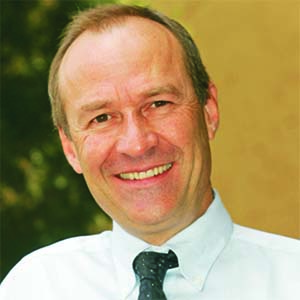Formula One’s much-publicised sale for $4,4-billion to the Liberty Media Group could set the stage for one of the sport’s biggest shakeups in its 66-year history.
 By Graham Duxbury, MD of Duxbury Networking
By Graham Duxbury, MD of Duxbury Networking
If the deal is passed by anti-trust regulators, Liberty will take control of F1 by buying the shares held by Delta Topco from CVC Capital Partners, the UK investment group that bought into F1 in 2005.
The buy-out, expected to be completed by March next year, is not as straightforward as it may seem. While CVC will still own 65% of F1 Group stock and retain board representation, it is ceding control of the sport to Liberty which will have all the voting shares.
The deal, which involves cash, exchangeable debt and newly issued Liberty Media Group shares, will give F1 an enterprise value of $8-billion.
Importantly, long-standing F1 supremo and commercial chief Bernie Ecclestone – who has single-handedly masterminded F1 for the past 40 years – will be retained as F1’s CEO for the next three years.
Liberty Media is controlled by 75-year-old tycoon John Malone, a billionaire American business executive and the largest individual private landowner in the US, with title to nearly 850 000 hectares (more than 2-million acres).
Malone, who also owns the Atlanta Braves (a Major League baseball team) and has stakes in radio, telecommunications and television companies throughout the US, was nicknamed “Darth Vader” by former US vice president Al Gore, who recognised Malone’s tough, uncompromising approach to business dealings.
It seems that Ecclestone was initially upbeat about working closely with Malone, believing the American’s wide-ranging expertise in the fields of TV, social media and sports assets would be of significant benefit to F1.
However, the F1 universe is changing, with Liberty executives now pointing to gaming and gambling as two of the biggest potential growth areas for F1, supplemented by virtual reality and augmented reality technologies.
In this light, the key question being asked by F1 insiders is will the two billionaires – Ecclestone and Malone – get along well enough over the next three years to make their relationship work for the good of F1? Do they have enough of a common vision?
Throw new F1’s new chairman Chase Carey into the mix and F1 future becomes increasingly unpredictable.
Carey, who is currently vice chairman of the 21st Century Fox media conglomerate (a Liberty Group holding), has strong views on the way F1 has been run under Ecclestone, correctly likening it to a “dictatorship”.
Looking to the future, he says: “There can’t be a dictatorship, even if probably they [the F1 fraternity] are used to it.”
Fans will remember that in 2000 it was Max Moseley, then-president of the FIA, F1’s governing body, who sold F1’s commercial rights to Ecclestone in a 100-year deal for $300-million.
This effectively gave Bernie ownership of the sport which he later sold on via a series of deals to CVC. He nevertheless retained ultimate control of the sport. At the time, Moseley was accused of selling the F1 crown jewels for a pittance.
Interestingly, Ecclestone was unfazed when Mosely recently warned that Bernie could “walk away” if Liberty were to interfere with his running of the sport.
“Max knows me very well …,” Ecclestone, now 86, is reported to have said.
This, together with Bernie’s other pertinent comments, seem to define his position: “If, by chance, things aren’t going the way I think would be the right way then I will disappear for sure,” Ecclestone is reported to have said.
“I guess the new man will want to come in and make some noises. If I don’t like those noises, I will say ‘adios’.”
Hence, it’s no surprise that suggestions are already emerging regarding replacements for Ecclestone. Zak Brown, until recently the CEO of the CSM sports marketing and entertainment group, and Martin Whitmarsh, former team principal of McLaren, appear to be in the frame.
Brown would be a good choice for the role of F1’s commercial director. His credentials include being instrumental in securing the return of the Martini brand to F1 with Williams, bringing together UPS and Ferrari, uniting the Johnnie Walker whisky label with McLaren, and overseeing the deal that brought UBS, the Swiss-based global financial services company, into F1. However, would he be able to work amicably with Malone and Carey?
Welcome to the dark side.
